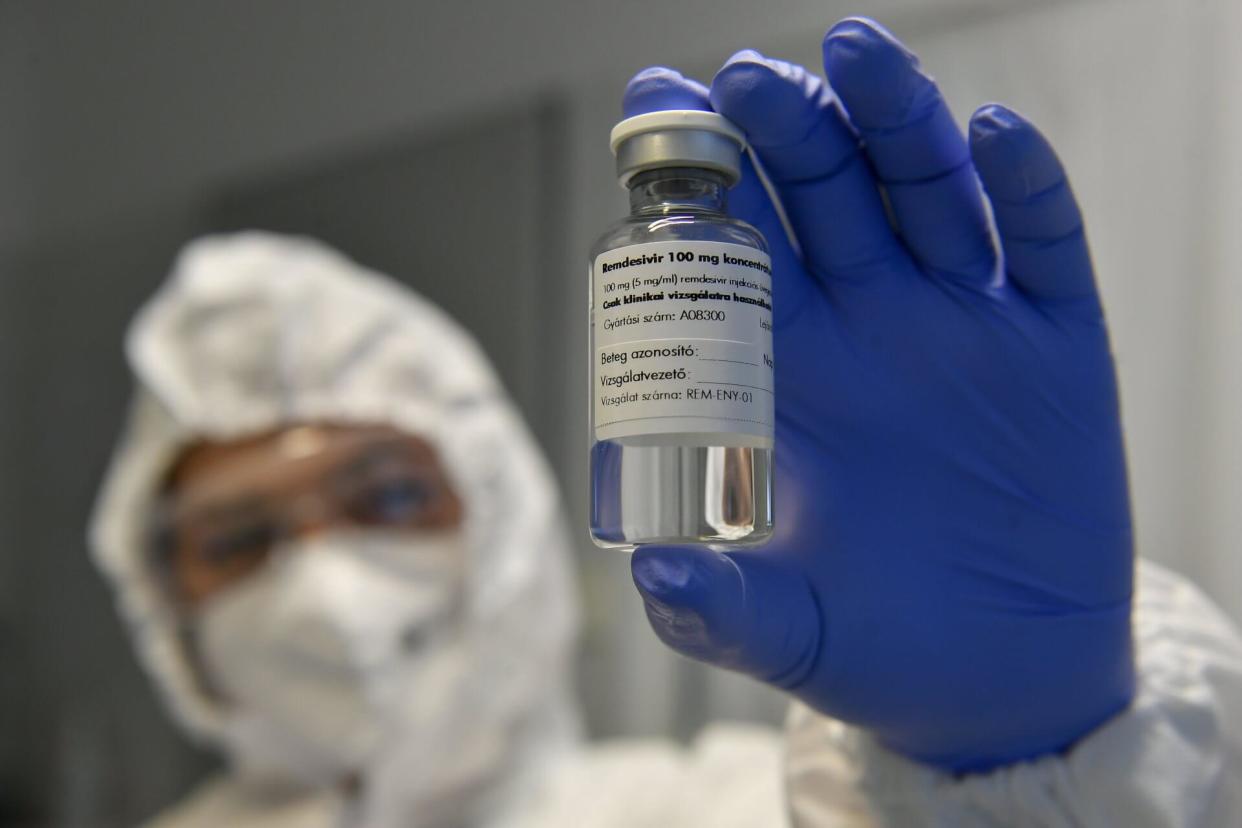This New Covid Drug Might Not Even Work — So Why Does It Cost Hospitals a Fortune?

The U.S. Food and Drug Administration is standing by its new approval of remdesivir (Veklury), against the World Health Organization’s suggestion. On Nov. 20, the WHO issued a conditional recommendation against the use of the antiviral medication when treating patients with COVID-19 of any severity.
Find Out: Will Medicare Cover the Coronavirus Vaccine?
The WHO’s recommendation against remdesivir was reached after examining data from the SOLIDARITY trial that indicated the drug did not improve critical outcomes including mortality or the need for mechanical ventilation. In its remdesivir approval statement, last updated on Nov. 25, the FDA acknowledged the WHO’s trial, but categorically dismissed its findings, asserting that they don’t refute findings in another trial that suggest remdesivir can benefit COVID patients.
COVID Costs: Trump’s Latest Miracle Drug and 12 Controversial COVID-19 Price Hikes
You might be wondering, if remdesivir at worst, doesn’t work much, what is the harm in administering it to COVID-19 patients? Isn’t trying — just in case — better than not trying? These are valid questions, but they don’t take into account a critical subtext: money. Remdesivir is an expensive drug; a single course of treatment is priced at $2,340 per patient — when purchased by governments of developed countries. Private insurance companies pay upwards of $3,100, as do hospitals.
Where’s My Second Stimulus Check?: 32 Answers to Your COVID-19 Money Questions
In its open letter setting its steep prices, Gilead (NASDAQ:GILD) asserted that remdesivir will save hospitals an average of $12,000 per patient hospitalized with COVID-19, citing the drug’s ability to speed up recovery and thus shorten costly hospital stays. But with WHO’s new research indicating that remdesivir does not quicken recovery — or help in any other meaningful way in people hospitalized with the deadly virus — the question of whether this pricey treatment is worth the expense must be asked.
Economic Impact: 25 Companies Laying Off the Most People Thanks to Coronavirus
For the first time, over 100,000 people are hospitalized with COVID-19 as of Dec. 2, according to The COVID Tracking Project. COVID-19 hospitalizations could cost the U.S. healthcare system between as much as $16.9 billion in 2020, according to Avalere Health, a healthcare consulting firm. Commercial payers will absorb the majority of those costs, followed by Medicare, and then federal and state Medicaid.
Surprise: How a COVID-19 Vaccine Could Hurt Your Portfolio
This number was projected back in June, just before Gilead’s announcement of the price of remdesivir, so there’s a good chance the final price could be much greater than that as the FDA continues to court the controversial drug. Healthcare costs are just one more reasons Americans are in record-breaking amounts of debt.
More From GOBankingRates
Are You Spending More Than the Average American on 25 Everyday Items?
Investors Bank’s Checking Accounts: Helping You Do More With Your Money
Guns and 32 Other Things You Definitely Do NOT Need To Buy During the Coronavirus Pandemic
This article originally appeared on GOBankingRates.com: This New Covid Drug Might Not Even Work — So Why Does It Cost Hospitals a Fortune?

